Susan Cox Powell remains missing. A judge declared her dead under Utah law on Dec. 6, 2014, five years from the date she was last seen alive.
Her husband Josh Powell, the man believed responsible for her death, is also dead and cannot be held accountable.
Steve Powell and Michael Powell are both dead. If they knew anything about Susan Powell’s whereabouts, they chose not to disclose that information. The surviving members of the Powell family are living in seclusion, with the exception of Josh’s estranged older sister, Jennifer Graves.
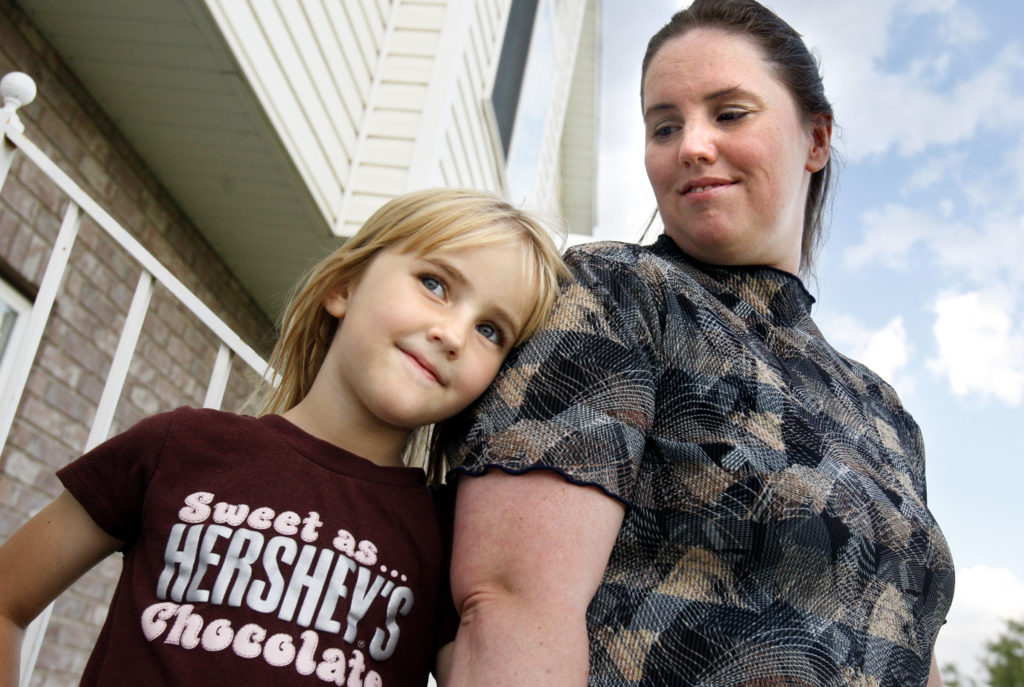
During our interview, Jennifer told me she believes Susan, Charlie and Braden have been reunited in heaven.
“Susan is on the other side. We may not know where her body is, but I know where she is,” Jennifer said. “She’s with her boys and she’s fine. She’s just fine.”
In the wake of Susan’s disappearance, Jennifer had hoped to help Charlie and Braden escape the same destructive family from which she’d extracted herself.
“The biggest single thing that I was concerned about was the boys. I wanted them to get out of that situation and not continue to perpetuate this violent cycle that was continuing through my family,” Jennifer said.
A Generational Cycle of Abuse
The seeds of Josh Powell’s actions were planted well before the murder-suicide in Washington. They were present from his early childhood, cultivated by a father who himself had been raised in a tumultuous family environment.
Steve Powell made no secret of his own troubled upbringing. He included a story about the kidnapping game his parents had played in the biography section of his music website, stevechantrey.com.
“At an early age my mother made a unilateral and secretive decision to separate from my dad, and moved with my brother, my sister and me to Chillicothe, Ohio,” Steve wrote. “My dad found us after a few months, and my parents reconciled.”
In a previously undisclosed journal entry dated July 9, 2010, Steve was more candid. He made a stunning admission about the development of his own deviancy.
“My parents both contributed to the interruption and distortion of my emotional development,” Steve wrote. “My dad ‘kidnapped’ us when I was eight years old. His mother told us ‘you will never see your mother again,’ and it took a year for her to find us. For the rest of our lives with her she kept us from our father and villainized him to an extreme degree.”
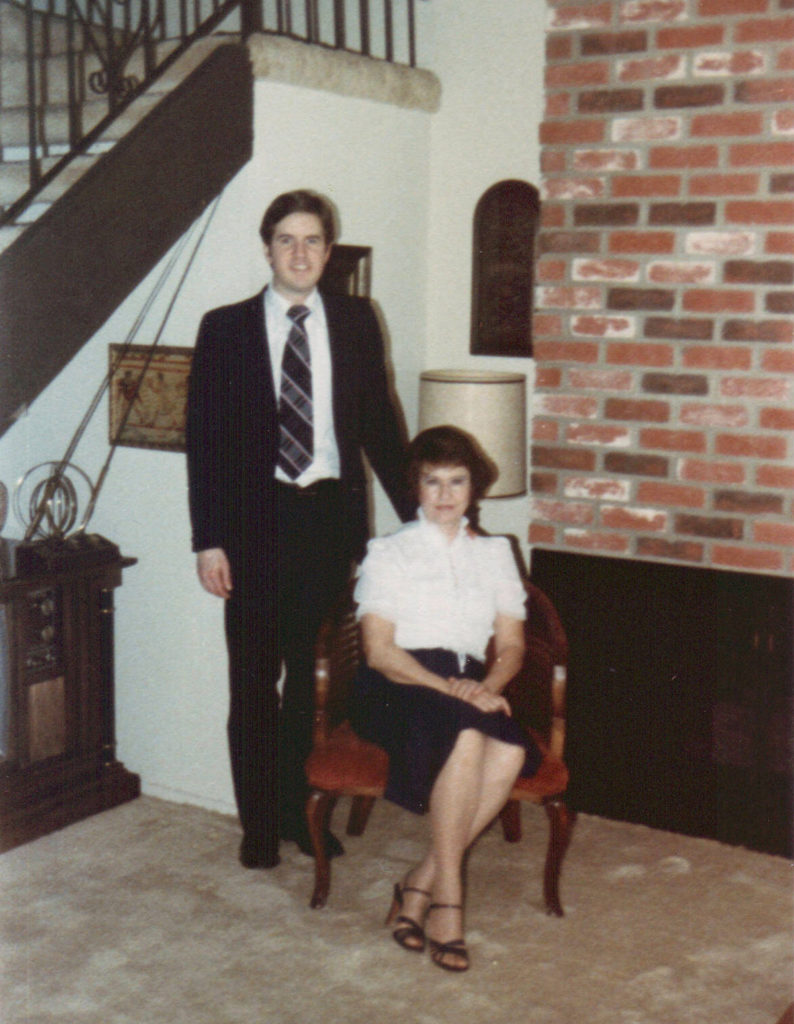
Steve supposed that separation gave rise to his predilection for voyeurism.
“My mother was the parent I was close to. No doubt this is related to the Oedipal Complex, and at eight years I was probably still in a stage in which I had not yet differentiated myself from my parents,” Steve wrote. “Perhaps this has led to my extreme attraction to the opposite sex and tendency toward voyeurism.”
Steve carried his demons into his own marriage. He attempted to instill his aberrant views on sex and relationships in his children, exposing them to pornography at a young age. He nurtured the development of narcissism in his eldest son, Josh.
Jennifer Graves, alone, appeared to have escaped the maelstrom.
“Part of me doesn’t understand why I walked away from that, where my siblings would not recognize what was going on.”
Jennifer Graves
In June 2013, Jennifer and her co-writer Emily Clawson released a book titled A Light in Dark Places.
“Part of my motivation for writing that book was to kind of show a little bit of the background and the lead up. How things happened,” Jennifer said. “That was one of the things that was so good about writing the book was for me personally to be able to go through that and face those things and that was very therapeutic.”
Susan Cox Powell Domestic Abuse
Susan Cox entered into a marriage with Josh Powell at age 19, not understanding the full scope of his history of family turmoil. Warning signs of the toxicity were evident in some of her husband’s statements and actions yet at her young age, Susan failed to recognize them.
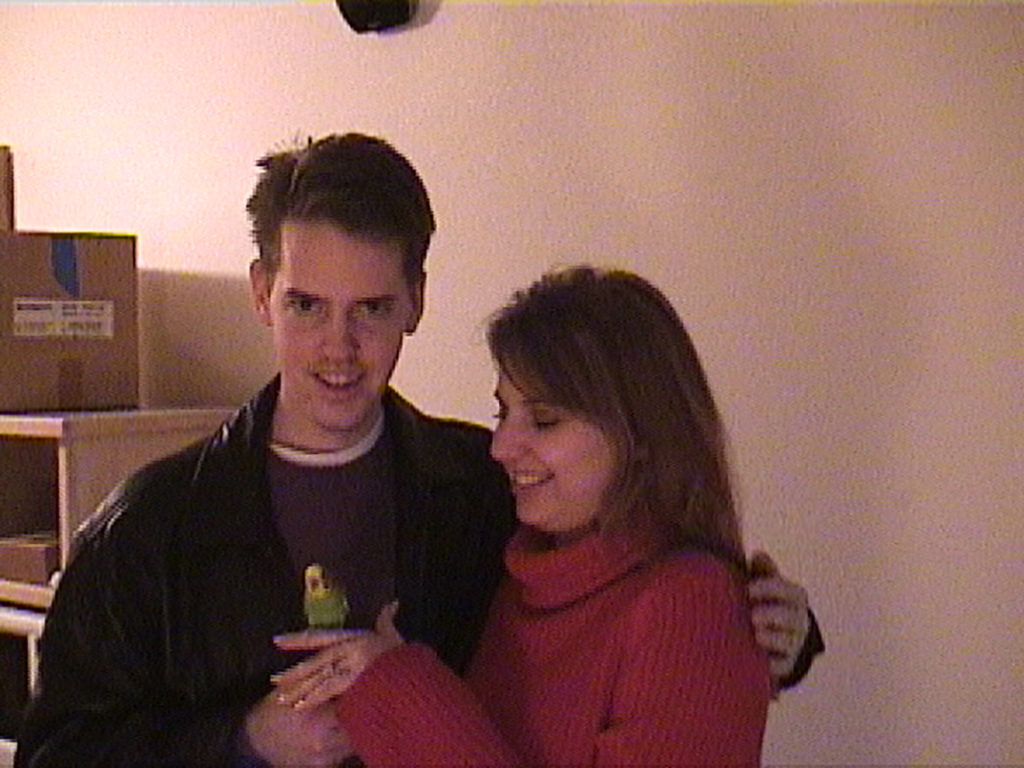
In a Facebook message to Cox family friend Mike Gifford on Nov. 15, 2008, Susan acknowledged her regrets.
“I’m finding out more and more that family/friends were seeing the red flags long before I did and of course I wish they would have said something,” Susan wrote. “Of course I realize I would never take back having my boys and the trials I’ve experienced so far have made me so much stronger and I should really thank the jerk I married for putting me through them.”
Susan disappeared 13 months after sending that message, likely killed by her husband in an outburst of violence.
Susan’s writings suggest the absence of physical violence in her marriage up to that point had made it difficult for her to recognize Josh’s treatment as domestic abuse.
“Often times people who are at risk don’t even realize it because it’s been abuse or violence that’s escalated over time.”
Jennifer Oxborrow
Jennifer Oxborrow, the Executive Director of the Utah Domestic Violence Coalition, said the term “domestic violence” can be a misnomer.
“There’s a lot of talk within the advocacy community about changing some of that terminology,” Oxborrow said. “We can be violent in our communication. We can be violent in the coercive control. We can terrorize people without laying a hand on them. We can do that by threatening to hurt children or animals, by threatening to ruin someone’s career or leave them in a poor situation financially.”
UDVC and similar organizations exist to provide assistance to people in situations like Susan’s. They offer services including legal advocacy and advice to help people safely escape abusive situations.
Missed Opportunities
The disappearance of Susan Cox Powell triggered a sequence of events that have touched many lives.
Law enforcement officers tasked with investigating her presumed murder worked for years in the hopes of bringing Susan home and delivering justice for her family.
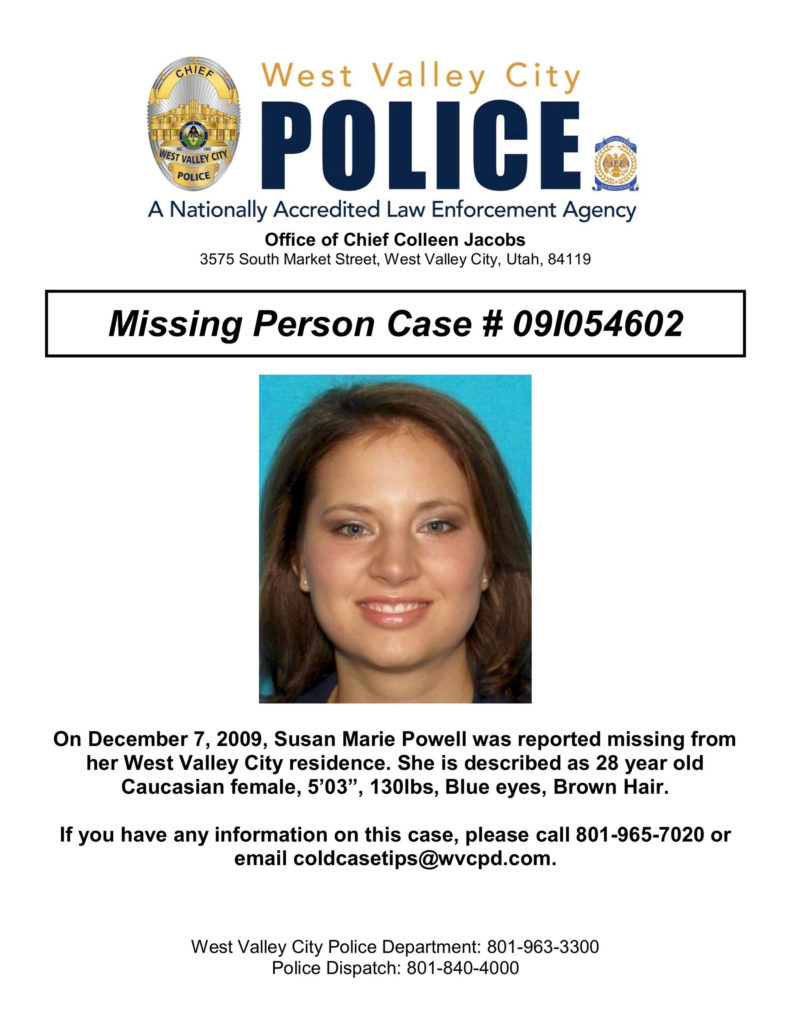
To this date, no one has ever been held to account for Susan’s death, a fact that haunts retired detective Ellis Maxwell.
“There’s answers that I’ll never ever get and there’ll never be any justice held against anybody for their actions and the likelihood of Susan ever being discovered is in my personal opinion very super low,” Ellis said.
Ellis expressed regret over not securing a search warrant for the Sarah Circle home on the night of Susan’s disappearance. He described frustration at the unwillingness of prosecutors to pursue criminal charges against Josh.
“I think everybody involved in the case has struggled at one point or another with it.”
Ellis Maxwell
In the years since his retirement, Ellis had made sporadic progress on a book of his own. He hoped it would provide insight to other police officers and agencies about lessons he learned through the course of the investigation.
“I thought I could have that thing written in six months but it’s tough because I’m basically just reliving the case,” Ellis said. “I’d sit down and I’d start typing and I’ll type and type and type and do this and do that and then next thing you know, I can’t sleep for two, three days.”
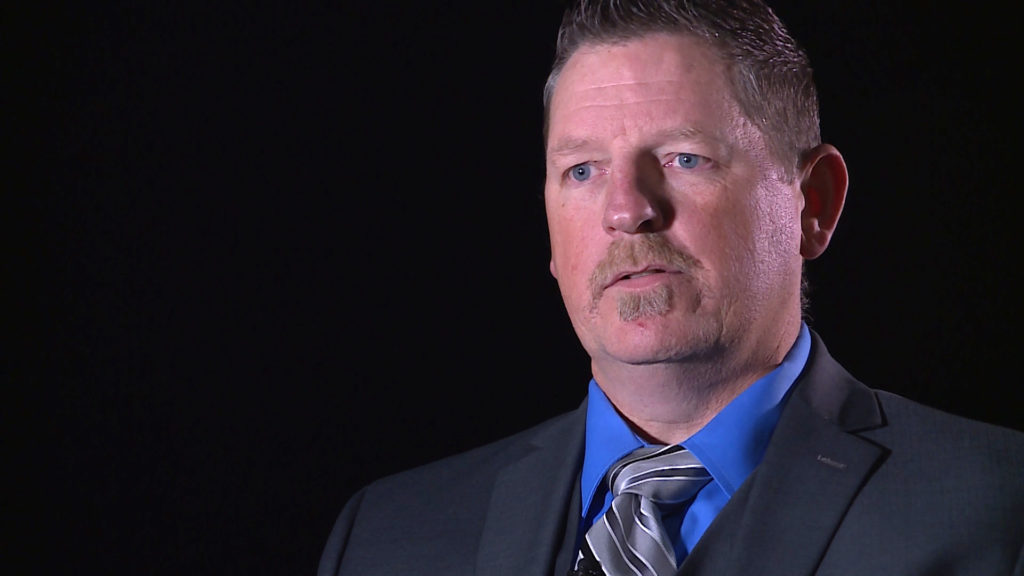
More recently, Ellis has focused on launching a non-profit organization called Shield Guardian. He’s also started sharing his experiences through his website, ellismaxwell.com.
“I have empathy for the Coxes,” Ellis said. “I can’t imagine losing a child and never being able to see them again or put them to rest or not ever have any answers. That would be something I wouldn’t wish upon my worst enemy. That’s just horrible.”
Episode credits
Research, writing, hosting and production: Dave Cawley
Production assistance: Danielle Prager, Adam Mason
Additional voices: Kristen Sorensen (as Susan Powell), Eric Openshaw (as Josh Powell), Ken Fall (as Steve Powell)
Cold main score composition: Michael Bahnmiller
Cold main score mixing: Dan Blanck
Supplemental music: Dave Cawley
KSL executive producers: Sheryl Worsley, Keira Farrimond
Episode transcript: https://thecoldpodcast.com/season-1-transcript/angel-of-hope-susan-powell-theory-full-transcript
KSL companion story: https://www.ksl.com/article/46509798/therell-never-be-any-justice-key-takeaways-from-the-susan-powell-case-as-cold-wraps-up







